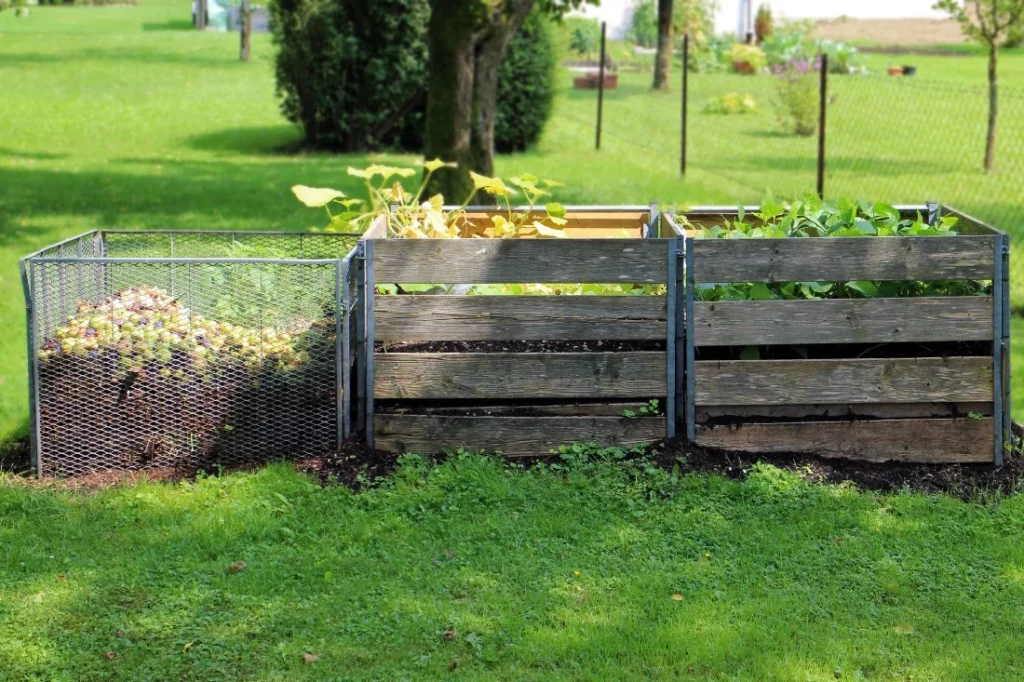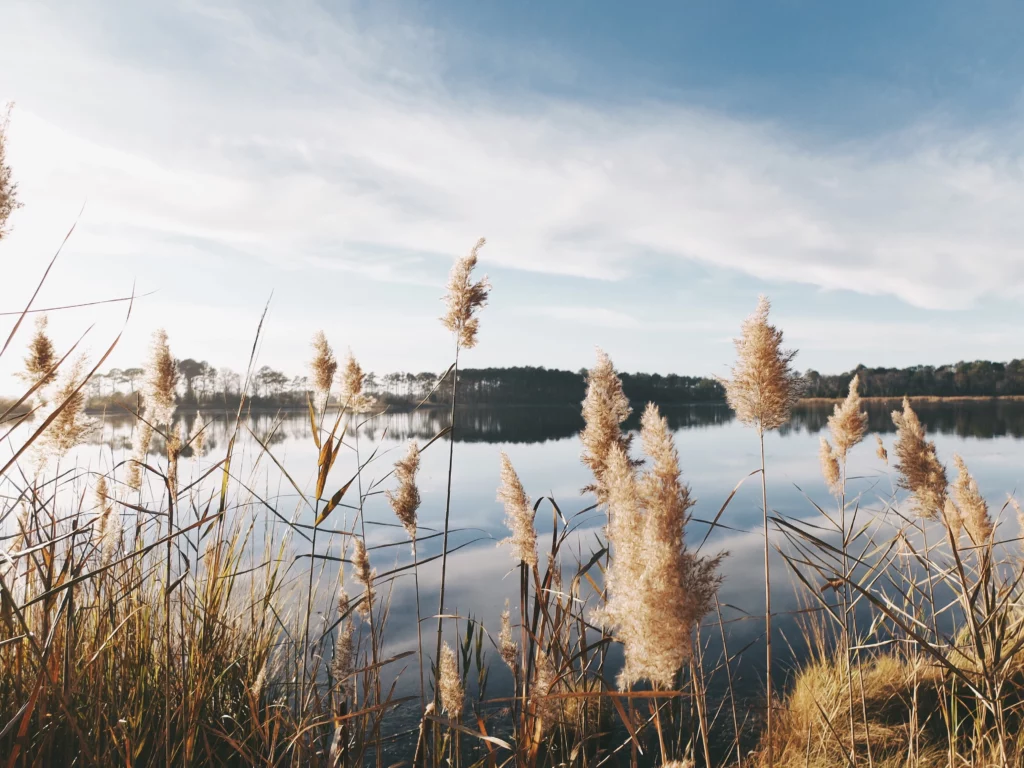Without additional fertilizer, many crops would grow rather poorly than well. However, the popular wisdom “a lot helps a lot” is only partly true here. On the one hand, too much fertilizer harms your crops, but more importantly, careless use of fertilizer harms biodiversity, groundwater quality and the climate. This article tells you what to look out for when fertilizing your vegetable beds.
Fertilize ecologically, it’s simple:
- Avoid mineral fertilizers, fertilize organically instead.
- Use slow-release fertilizers such as compost, manure or horn shavings
- Keep nutrient cycles short: Produce fertilizer yourself if possible
- Do not fertilize too much
Contents
What is mineral fertilizer?
Plants need certain chemical elements to grow. They can only absorb these in certain forms. In mineral fertilizers, the nutrient elements are contained in exactly the form in which plants can absorb them. This ensures that mineral fertilizers usually have an immediate effect and plants suffering from nutrient deficiencies can recover quickly. However, this advantage of mineral fertilizer is also its biggest disadvantage. Plants can absorb nutrients so well because they are very mobile in the soil. They dissolve well in water and are not bound to soil particles. However, this not only ensures that they are easily absorbed by plants, they are also very susceptible to leaching. In addition, they have only a very short-term fertilizing effect due to their high mobility. Another shortcoming of mineral fertilizers is their manufacturing process. The three major plant nutrients nitrogen, phosphorus and potassium, as well as many micronutrients, are extracted in a very energy-intensive way – either from the atmosphere or in mines. These production processes are anything but environmentally friendly. So if you garden out of environmental awareness, you should avoid mineral fertilizers altogether if possible. Because there are enough natural alternatives.
What is organic fertilizer?
Organic fertilizers, as their name suggests, consist of organic material. Organic material is everything that once lived before. Thus, the nutrient elements are partially fixed in more complex compounds and are thus released over time as the fertilizer is processed in the soil by microorganisms. This gives many organic fertilizers a long-term fertilizing effect. Moreover, depending on the source material, the composition of the fertilizer not only meets the needs of the plants, but also provides a food source for soil organisms. In an organically maintained garden, you are primarily feeding the soil life, which in turn feeds your plants. Another advantage of organic fertilizers is that you can often make them yourself – whether compost, plant slurry or green manure: once you have a garden at your disposal, you usually have everything you need to make these forms of organic fertilizer yourself.

What are the dangers of too much or the wrong fertilizer?
Growth inhibition
A lot helps a lot. Intuitively, we often assume that lots of fertilizer will also help plants grow better. While it is true that some plants are very hungry, another saying is also true: the dose makes the poison. That’s because too much fertilizer can kill even the hungriest of high-growers (e.g., cabbage, squash). Weak growers (e.g. lettuce, bush beans) with already low nutrient requirements are particularly sensitive to overfertilization. This makes them more susceptible to diseases and pests. So when fertilizing, always consider which plant you have in front of you and how many nutrients it needs in the first place.
Contamination of groundwater
Especially liquid and mineral fertilizers should be used sparingly. The nutrients contained here are particularly mobile in the soil. If too much fertilizer is applied and there is increased rainfall, the fertilizer can end up in the groundwater instead of in the plants. Then, firstly, the fertilization has not been worthwhile at all and, secondly, too much nitrate or phosphate in the groundwater is dangerous for the drinking water quality of many springs. In addition, eutrophication ( = nutrient enrichment) of water bodies can lead to a decrease in biodiversity.
Nitrogen oxide emissions
Nitrogen in fertilizers poses a particular threat to the climate. If too much nitrogen is fertilized, it can be microbially converted to nitrous oxide (N2O) in the soil via several intermediate stages. This is a greenhouse gas that is about 300 times more potent than CO2. So if you use too much nitrogen fertilizer to grow your own vegetables, you may go from being a climate hero to a climate polluter.

Which fertilizer should I use?
Fertilize best with organic material, you should avoid mineral fertilizers in any case. Organic material is everything that once lived. This includes classics like compost and manure, but also horn shavings, sheep’s wool, bone meal or blood meal. For sustainability reasons, plant-based materials are generally preferable. However, since horn shavings and bone meal are waste products of the meat industry anyway, it makes sense to feed them back into the nutrient cycle and thus utilize their value.
From an ecological perspective, it also makes sense to keep nutrient cycles as short as possible. So buy as little as possible, but make as much fertilizer as possible yourself. The nutrients contained in purchased fertilizer have been taken from an ecosystem elsewhere and must be replaced by fertilizer there. In addition, transport requires energy, which can be saved if fertilizer is produced at the place of consumption itself. The best-known do-it-yourself fertilizer is probably compost. In this process, dead plant material is piled up and processed by worms, insects and microorganisms. After about a year, the plant tissue has decomposed to such an extent that humus is produced again. Compost tends to have a long-term fertilizing effect and should therefore be applied and incorporated into the soil once per season, for example as part of a four-crop rotation. Other organic long-term fertilizers include manure from horses, sheep, chickens and cows, or horn shavings and sheep wool. Generous mulching in the garden also provides food for microorganisms and therefore contributes to soil improvement. For intermediate fertilization during the season, for hungry heavy eaters, or when plants are severely lacking in nutrients, organic liquid fertilizers such as plant dips or compost tea are also suitable. Use liquid fertilizers sparingly, however, so that they do not leach into the groundwater.


